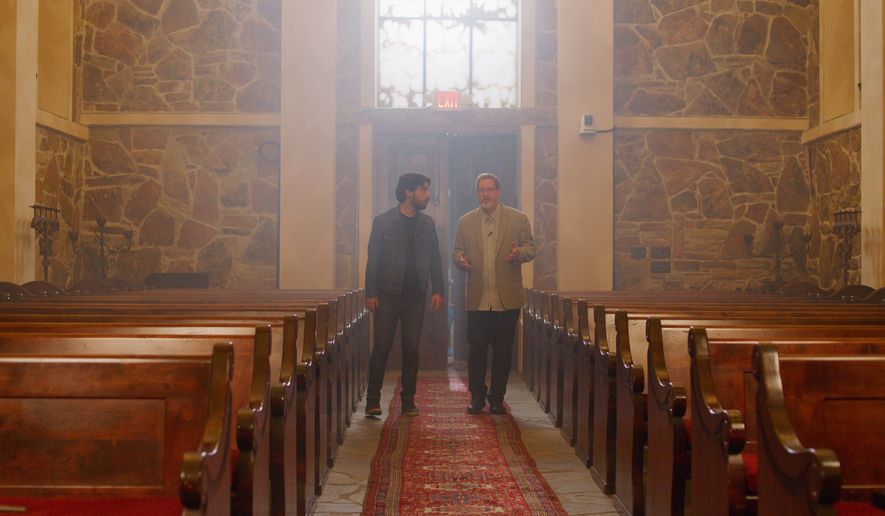NASHVILLE, Tenn. | Former investigative reporter Lee Strobel says today’s skeptics need evidence before they consider Christianity’s claims.
That’s one reason why, the best-selling Christian non-fiction writer says, his 2021 book “The Case for Heaven” is being presented as a documentary film in theaters April 4-6.
“This is a magnificent, beautiful motion picture with an original score,” Mr. Stobel said at the National Religious Broadcasters 2022 conference. “We take you to exotic and wonderful places. It’s kind of a new kind of apologetics. It’s taking evidence and facts and logic and reason, but it’s creatively presenting it in a way that touches the head and the heart.”
The Washington Times is a sponsor of the broadcasters conference.
The film is a production of Sandoval Studios and K-LOVE Films, a unit of the popular Christian radio network, and is being distributed by Fathom Events.
The documentary includes interviews with noted pastor and author Francis Chan, best-selling Christian author John Burke, the late evangelist Luis Palau and others, including Sharon Dirckx, who holds a doctorate in brain imaging from the University of Cambridge and is now a senior tutor at the Oxford Centre for Christian Apologetics.
Documentary director Mani Sandoval said “The Case for Heaven” focuses on documented cases of individuals whose near-death experiences allowed them to glimpse heaven, or something else a “clinically dead” person shouldn’t be able to perceive, before returning to consciousness.
When Mr. Strobel first described the book and potential film to him, “I immediately, if I’m honest, I was not very interested, because all the ‘near-death experience’ movies [of] people going to heaven back came to my mind,” Mr. Sandoval said.
Such skepticism is well-founded: In 2015, Tyndale House Publishers, one of the top Christian publishing firms, yanked “The Boy Who Came Back From Heaven,” which had sold more than 1 million copies since being published in 2010. Co-author Alex Malarkey released a statement saying he did not die, did not go to heaven and had fabricated his story “because I thought it would get me attention.”
Mr. Sandoval said he came around after Mr. Strobel “gave me a two-minute presentation” on verifiable near-death experiences.
“It just blew my mind,” the director said. “I’ve been a Christian my whole life, and I didn’t know a lot of this stuff. So I was like, ‘Man, if I don’t know this stuff, I bet you there’s a lot of people out there that can really benefit from this.’”
Mr. Strobel added: “So I only looked at those cases — because I was a skeptic about near-death experiences — I only looked at those cases where we had corroboration. The things that people report seeing or hearing that they could only see or hear if they actually had an out-of-body experience.”
He recounted the story of a woman named Maria, who “died” in a hospital but said she was conscious of the actions taken to revive her because her spirit was outside her body during the time. Before regaining consciousness, the woman said she saw “‘a tennis shoe on the roof of the hospital and it’s a left foot. It is dark blue. It’s a man’s tennis shoe. There’s a little wear over the little toe and the shoelaces tucked under the heel.’”
The hospital staff found the shoe exactly as described. That and similar cases made Mr. Strobel’s belief in a soul that either ascends to heaven or descends to hell at death even stronger, he said.
“A lot of atheists will say that we are just our bodies, we’re just our brains, we don’t have a soul,” he said. “But then the near-death experiences say indeed our soul does survive our clinical death. That’s amazing,” he added.
A one-time atheist himself, Mr. Strobel applied his investigative reporting skills to evaluating Christianity’s claims when his wife found faith.
Following the brief theatrical run, the film will be available on DVDs and streaming, Mr. Strobel said. His hope is the documentary will lead people to question what exists beyond this life and consider what to do in terms of their own faith.
• Mark A. Kellner can be reached at mkellner@washingtontimes.com.




Please read our comment policy before commenting.